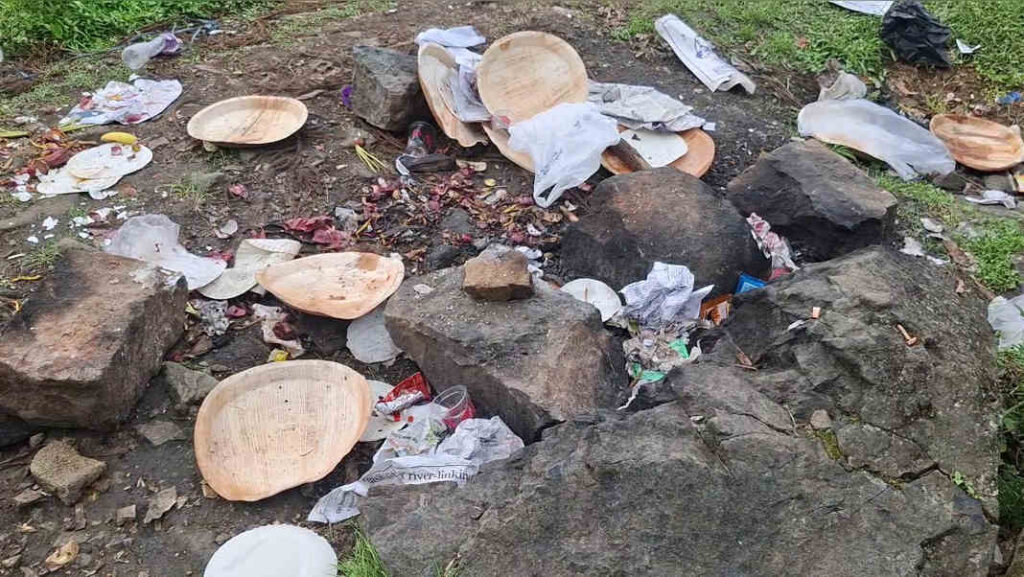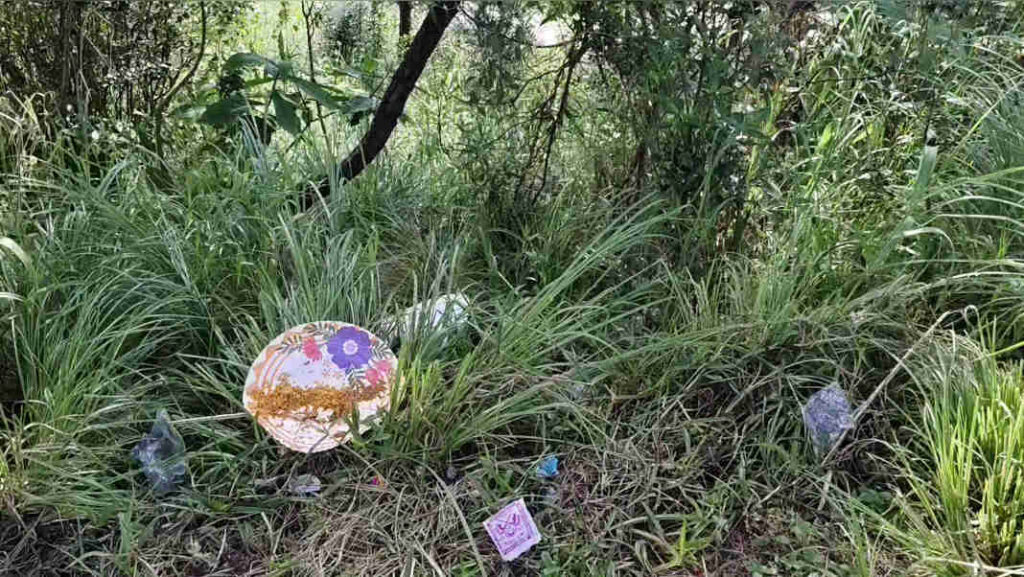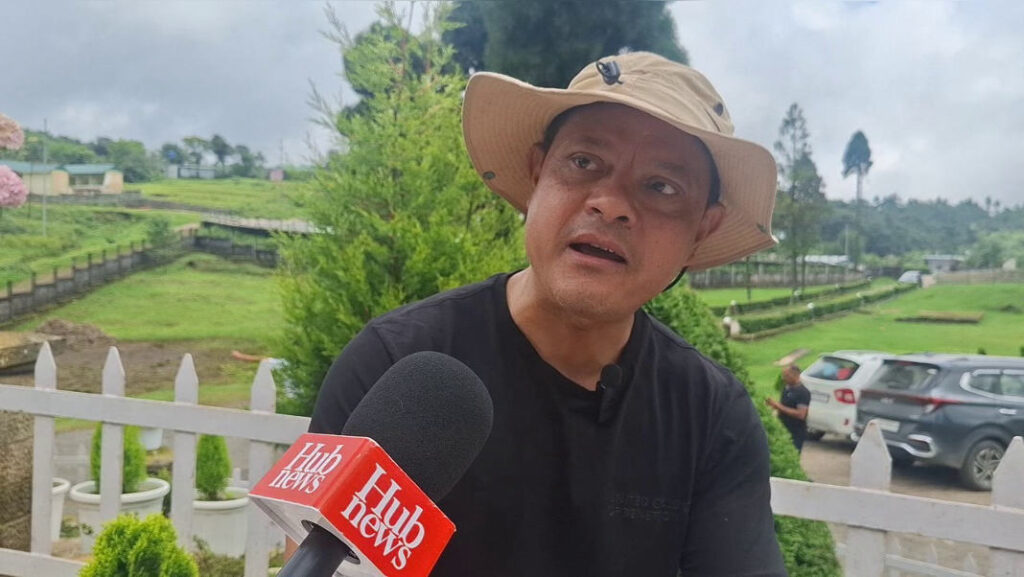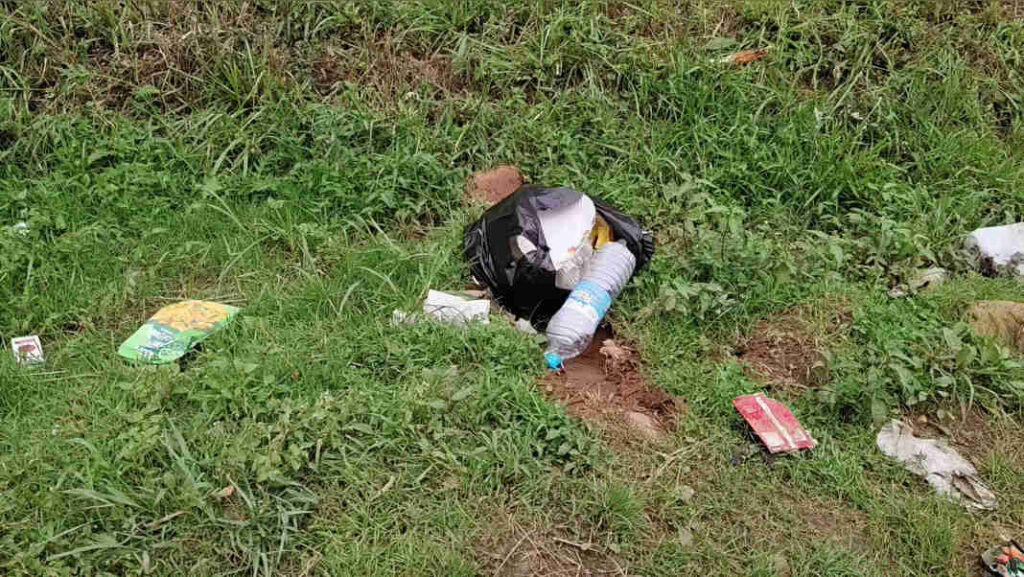Sohra, July 26: Plastic waste scattered along the roadsides of Sohra—one of Meghalaya’s most iconic tourist destinations—has become a distressingly familiar sight.

The once-pristine landscape that draws thousands of visitors each month is now marred by litter, highlighting a growing crisis that threatens the very foundation of the state’s tourism ambitions.

With the state setting its sights to become a regional tourism hub, and with significant government investment flowing into infrastructure and homestay development, a pressing issue threatens to derail its ambitions—poor waste management, especially in iconic destinations like Sohra (Cherrapunjee).
A ground visit by Hub News to Sohra paints a sobering picture. The lack of a proper waste disposal system has made the situation worse, turning tourism’s promise into a growing environmental challenge.
This is quite a challenge for us operating in the tourism sector,” said Allan West Kharkongor, Director of the Meghalaya Tourism Development Corporation.

“We’re happy to see tourism growing not just in Sohra but across rural Meghalaya. But with that growth comes the burden of waste, and the littering—by both visitors and some locals—is a real concern.”
“If we call this our Ri Khasi—our motherland—then we should treat it with respect. Don’t throw anything in open spaces” says Kharkongor.
Kharkongor pointed out that while many “quality tourists” respect the environment, others lack basic civic sense. He expressed concern that many scenic eco-destinations are now being misused as casual picnic spots, with groups cooking by the roadside and leaving behind piles of trash.
“It’s so sad,” he lamented. “We welcome everyone. Our land is beautiful and attracts visitors, but we must begin filtering the kind of tourism we encourage. If we claim to promote high-value, sustainable tourism, this kind of mess just doesn’t align with that vision.”
He admitted to feeling embarrassed when hosting guests, particularly on the drive from Mawkdok to Sohra. “Left and right, all you see is garbage. It’s disheartening.”
Kharkongor stressed that the issue isn’t limited to tourists—locals too are contributing. “Some of our own people throw beer bottles and plastic bags from their cars. The mindset has to change.”

His solution is simple: personal responsibility. “It has to start with us,” he said.
He also recommended that tourists bring their own waste bags and dispose of trash responsibly. “Even if you’re in a private car, carry your own waste bag. Collect everything in it and throw it away in a safe, designated place later.”
But the problem runs deeper. Unlike Shillong, which has a municipal body handling waste, rural areas like Sohra lack any formal waste management infrastructure. “We don’t even have a system to handle our own waste—so imagine the burden when visitors come and add to it,” Kharkongor said.
Current practices involve indiscriminate dumping—on hilltops, inside caves, and in forests. These methods not only damage the environment but also compromise the long-term viability of tourism in the area.
“In a growing destination like Sohra, the absence of a waste management system is a major bottleneck,” he warned. “While promoting tourism, the government must also invest in waste management. Both must go hand in hand.”

